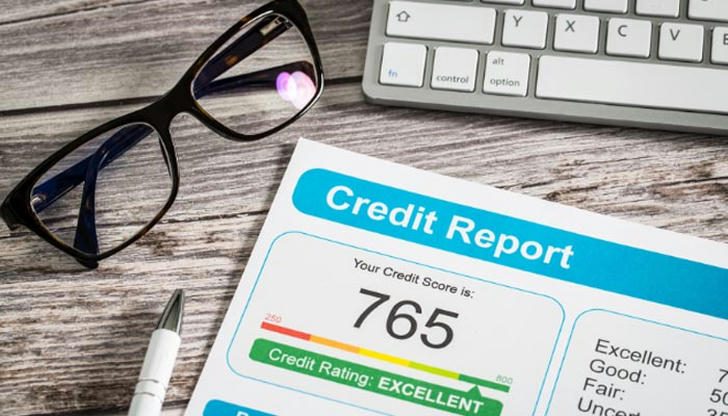Bad Credit Loans: What You Can Do When Your Score Is Low

Struggling with bad credit? You’re not alone—and you’re not out of options. Whether your credit score has taken a hit due to medical bills, missed payments, or just life happening, there are ways to borrow smart and avoid making things worse. This guide breaks down what lenders really look at, how to avoid common traps, and what small, realistic steps you can take today.
1. Your Credit Score Isn’t the Only Thing Lenders Look At

It’s true—your credit score matters. But it’s not the whole story.
Many lenders, especially smaller financial institutions and online platforms, consider alternative data when evaluating bad credit borrowers. This can include:
Your job history – A stable job, even without a high income, shows responsibility.
Bank account activity – Positive cash flow and no overdrafts can work in your favor.
Rental and utility payment history – If you’ve been paying rent on time, that matters.
Some lenders even allow you to upload documents (like recent pay stubs or bills) to help make your case. So before you assume a loan is out of reach, look into credit unions, community lenders, or fintech lenders that go beyond the number.
2. Pre-Qualified Doesn’t Mean You’re Approved

Getting a “You’re pre-qualified!” email can feel like a win—but don’t celebrate just yet.
Pre-qualification is just a soft check. It means you might qualify based on limited info. The real terms come after a hard credit check and income verification. Many people find the final offer includes:
Higher interest than expected
Smaller loan amounts
Fees they didn’t notice at first
Before accepting anything, read the full disclosure carefully. Focus on the APR (annual percentage rate), not just the monthly payment. Even if the payments seem affordable, a 35% APR loan can cost you hundreds—or even thousands—more over time.
3. Avoid the “Loan Trap Cycle”

When money’s tight, any loan can feel like a lifeline—but not all loans are created equal.
High-interest payday loans and cash advance apps can trap you in a cycle of debt. You borrow $300, owe $375 in two weeks, then re-borrow because you’re short again. The fees add up fast, and your financial stress only gets worse.
Look for better alternatives:
Credit union small-dollar loans – Usually $200–$1,000 at reasonable interest
Lending circles – Community-based lending with no interest (e.g. through nonprofits)
Buy now, pay later options – Useful for specific purchases, if paid responsibly
If you must take out a high-interest loan, only borrow what you truly need and build a clear plan to repay it quickly.
4. What If You Just Need $300?

Sometimes, it’s not a major financial crisis—you just need to cover groceries, a car repair, or a utility bill.
Instead of payday loans, consider:
Paycheck advance apps like EarnIn or Dave (beware of tipping models and overdraft risks)
Asking your employer for an advance—it’s more common than you think
Local nonprofits or churches, many of which offer emergency assistance funds Also, check with your utility provider. Many offer payment plans, grants, or seasonal relief you might not know about.
5. Smart Habits to Rebuild Credit (Beyond Paying On Time)

Improving your credit takes time, but a few strategic moves can help speed things up:
Keep credit usage low – Aim to use less than 30% (ideally under 10%) of your credit limit.
Don’t close old accounts – The longer your credit history, the better.
Ask for a credit limit increase – If approved, this can lower your utilization ratio (just avoid triggering a hard inquiry).
You can also try a credit-builder loan or secured credit card, where you use a small deposit to show payment reliability. Some services even let you report rent or utility payments to credit bureaus—worth considering if you’re already paying on time.
6. What Happens If You Can’t Repay?

Life happens. If you fall behind, the worst thing you can do is ignore it.
Here’s what to know:
Most lenders will work with you if you contact them early.
You can often negotiate a payment plan, interest freeze, or even partial forgiveness.
If it goes to collections, you still have rights under the Fair Debt Collection Practices Act (FDCPA).
Long-term, consider speaking to a nonprofit credit counseling agency. They can help you build a realistic budget, negotiate with creditors, and map out a recovery plan.
Final Thoughts: Borrow Smart, Build Strong
Having bad credit doesn’t mean you’re financially irresponsible—it often just means you’ve faced tough circumstances. The good news is, there are smart borrowing options available, and even small steps can make a big difference.
If you’re in a tough spot, focus on:
Finding fair lenders who see more than your score
Avoiding traps that only deepen the debt
Taking small actions to improve your credit over time
You’re not stuck—you just need a better map.
